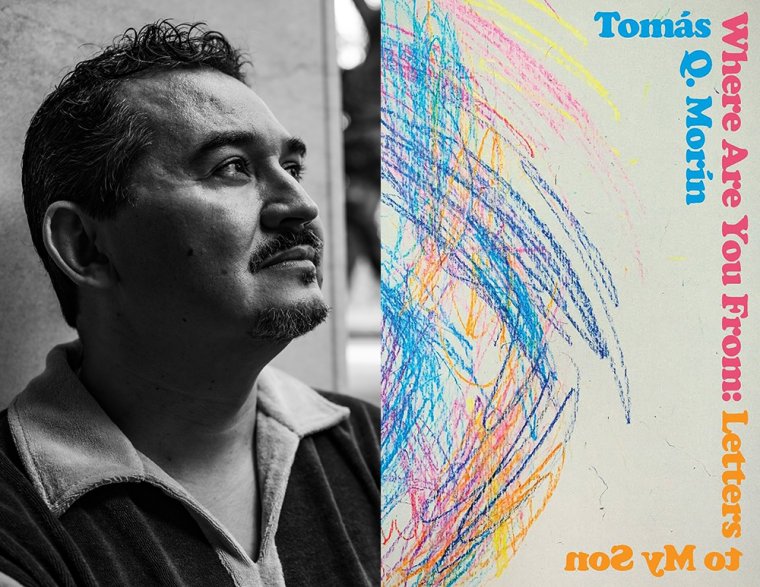This week’s installment of Ten Questions features Tomás Q. Morín, whose new book, Where Are You From: Letters to My Son, is out today from the University of Nebraska Press. In these intimate and candid epistles, Morín writes to his child about his daily life, family history, literature, and the precarious situation for people of color in the United States. The title of Morín’s book alludes to a story James Baldwin once told about being asked where he was from and his answer—that he was from New York City—not convincing his interlocutor. Morín recounts being similarly questioned about his origin, despite his family’s long history in Texas and a lineage that traces to Spain, “the land from which our people crossed an ocean to come here to these continents to steal, murder, and enslave,” he writes. Yet as a self-described brown man, Morín finds himself the focus of racist attention and wondering how his son will fare in decades to come: “When you lift your head from this book and look around, what do you see? What are the faces like, O boy of the future?” Morín also offers meditations on the nature of love, relationships, self-knowledge, and a host of other topics he shares in hopes of influencing and connecting with his child through the years. Tomás Q. Morín is the author of the memoir Let Me Count the Ways (University of Nebraska Press, 2022), winner of the 2022 Writers’ League of Texas Nonfiction Book Award, and the poetry collections Machete (Knopf, 2021), Patient Zero (Copper Canyon Press, 2017), and A Larger Country (American Poetry Review, 2012). He is on the faculty of Rice University.

Tomás Q. Morín, author of Where Are You From: Letters to My Son. (Credit: Jeff Fitlow )
1. How long did it take you to write Where Are You From: Letters to My Son?
The first draft took eight weeks. But then it was another few years before I added the last third of the book. Turned out I hadn’t yet lived what remained to write.
2. What was the most challenging thing about writing the book?
Hmmm, I guess not becoming so overwhelmed by my postpartum depression that I would become frozen and not be able to channel what I was feeling into the writing.
3. Where, when, and how often do you write?
Gosh, that depends. I love writing at this giant desk I’m typing these answers on now. I’ve been lugging this desk around move after move. In the times I haven’t had access to it, my office (especially when campus is empty) has been a wonderful spot to work. Ditto my car, on the Notes app of my phone. As for how often, well, not nearly as much as I would like. But often enough to remain connected to the work.
4. What are you reading right now?
I’m reading Lisa Halliday’s Asymmetry, Fugitive/Refuge by Philip Metres, and on deck is Szilvia Molnar’s The Nursery.
5. Which author or authors have been influential for you, in your writing of this book in particular or as a writer in general?
For every book, different literary angels perch on my shoulder and whack my knuckles when I go astray, haha. Okay, they don’t really whack my hands like the nuns of old, but they do keep me company. For this book, there were four: James Baldwin brought me courage, Albert Camus light, Ralph Ellison fire, and Dostoevsky—he brought the zany humor.
6. What is one thing that surprised you during the writing of Where Are You From?
The groundhogs. How they burrowed their way into this book still feels somewhat mysterious to me. I’m glad they were there to guide me.
7. Would you recommend writers pursue an MFA?
A hundred percent. I would never advise anyone who wanted to become a shoemaker to skip the apprentice stage.
8. If you could go back in time and talk to the earlier you, before you started Where Are You From, what would you say?
I’d say: Things will get better. You’ll get better. It won’t always be this hard for you and your family.
9. What forms of work, other than writing, did you have to do to complete this book?
I couldn’t have completed this book without Prince’s album Piano & A Microphone 1983. Those songs gave my work routine and my sentences a rhythm that I could count on.
10. What’s the best piece of writing advice you’ve ever received?
Philip Levine said, “Write everything that occurs to you to write because you never know what’s going to stick.”







